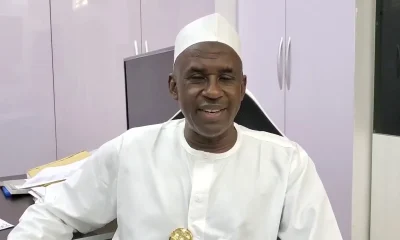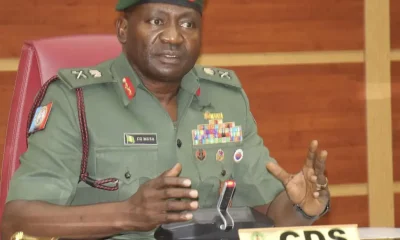NEWS
Northern Stakeholders Divided Over Service Chiefs Sack, Demand Urgent Insecurity Fix

The recent sweeping change that saw President Bola Tinubu overhaul the country’s military leadership has been met with a combination of caution and hope across Northern Nigeria, according to Ambassador Abdullahi Bokaji Adamu, the Country Director for the International Human Rights Commission (IHRC) and a retired Army Captain. The decision, officially linked to the government’s desire for improved performance against persistent insecurity, is also widely viewed through a lens of political calculation, highlighting the deep complexity of security appointments in the nation.
In an exclusive interview on Sunday, Ambassador Adamu described the President’s move as both a political signal and a strategic necessity. He noted that while the removal of the service chiefs signals a readiness to take decisive action, many Nigerians believe the move may have been influenced by underlying political dynamics or even internal power struggles within the military hierarchy—claims which, though unconfirmed, reflect a public mistrust of the system. This context is crucial, as the value of the sack to the public is measured not just by its official reason, but by its perceived hidden agenda.
The retired Captain stressed that a long-standing tradition in Nigerian politics sees each administration favouring appointments from its own region or political circle. This practice, he argued, unfortunately “undermines fairness and merit, as the most qualified or experienced officers are sometimes overlooked in favour of political loyalty or regional interests.” This high-value insight into the political economy of security appointments is what drives the mixed emotions in the North.
Fortunately for the administration, Ambassador Adamu acknowledged that the new appointments appear to have achieved some level of regional balance, with two out of the four new service chiefs originating from the North. This factor, he observed, has helped to alleviate some of the immediate tension and suspicion. However, the goodwill gained is conditional: the North is now “waiting to see results, not promises.” Communities ravaged by years of banditry, kidnapping, and insurgency are no longer satisfied with speeches; they demand tangible improvements in peace, stability, and safe roads.
Ambassador Adamu further pointed out a critical issue of public perception that the new chiefs must address: the common observation that the government often reacts with speed and decisiveness only when a tragedy directly affects the elite. The quick sack following a security breach that touched the leadership, compared to the perceived slowness following countless attacks on innocent citizens, fuels the feeling that “the government only acts fast when the powerful are touched.” The IHRC Director insists this perception must be reversed to earn enduring public trust.
To make the content longer and high value, it is imperative to reiterate that the success of the new security architecture rests on more than just military might. Ambassador Adamu advises the new service chiefs to embrace a broader, people-focused strategy that combines force with intelligence, open dialogue, and community participation. He urged them to work closely with state governors, traditional rulers, and local vigilantes to build an essential foundation of trust and cooperation. Ultimately, while the sack of the service chiefs is a commendable step, the government’s sincerity in prioritizing national security over political gain will determine if these changes usher in the positive and lasting peace that Nigerians so desperately yearn for. The cycle of insecurity, he warned, will persist “if politics continues to overshadow merit.”




